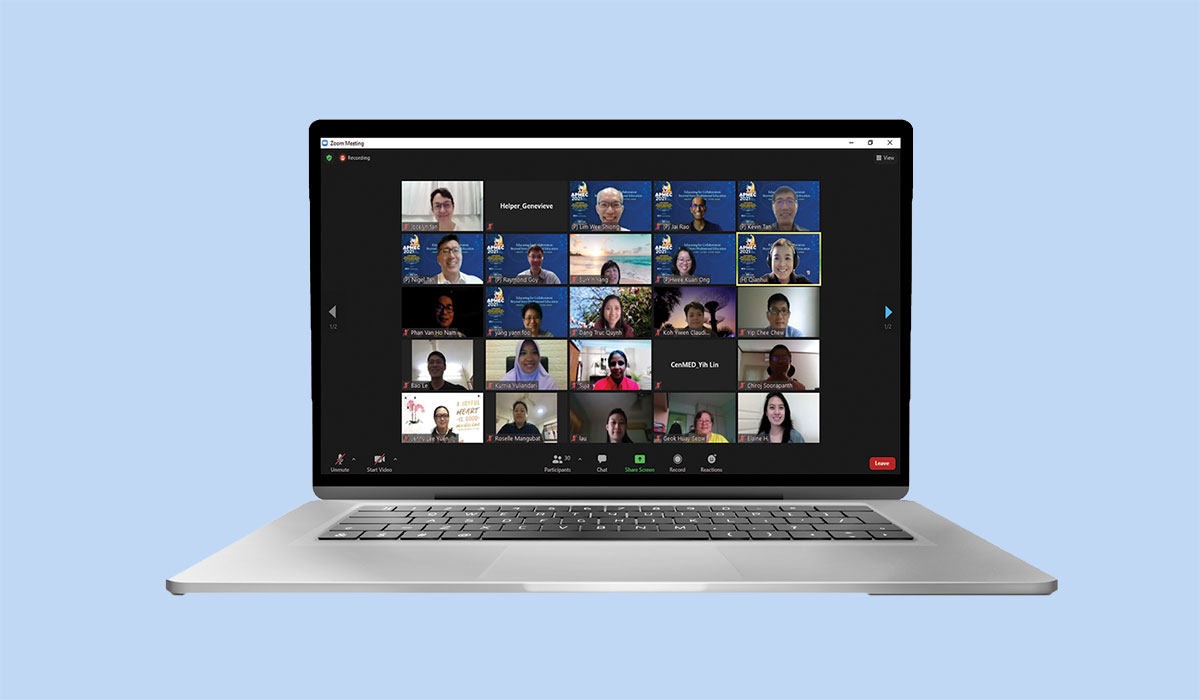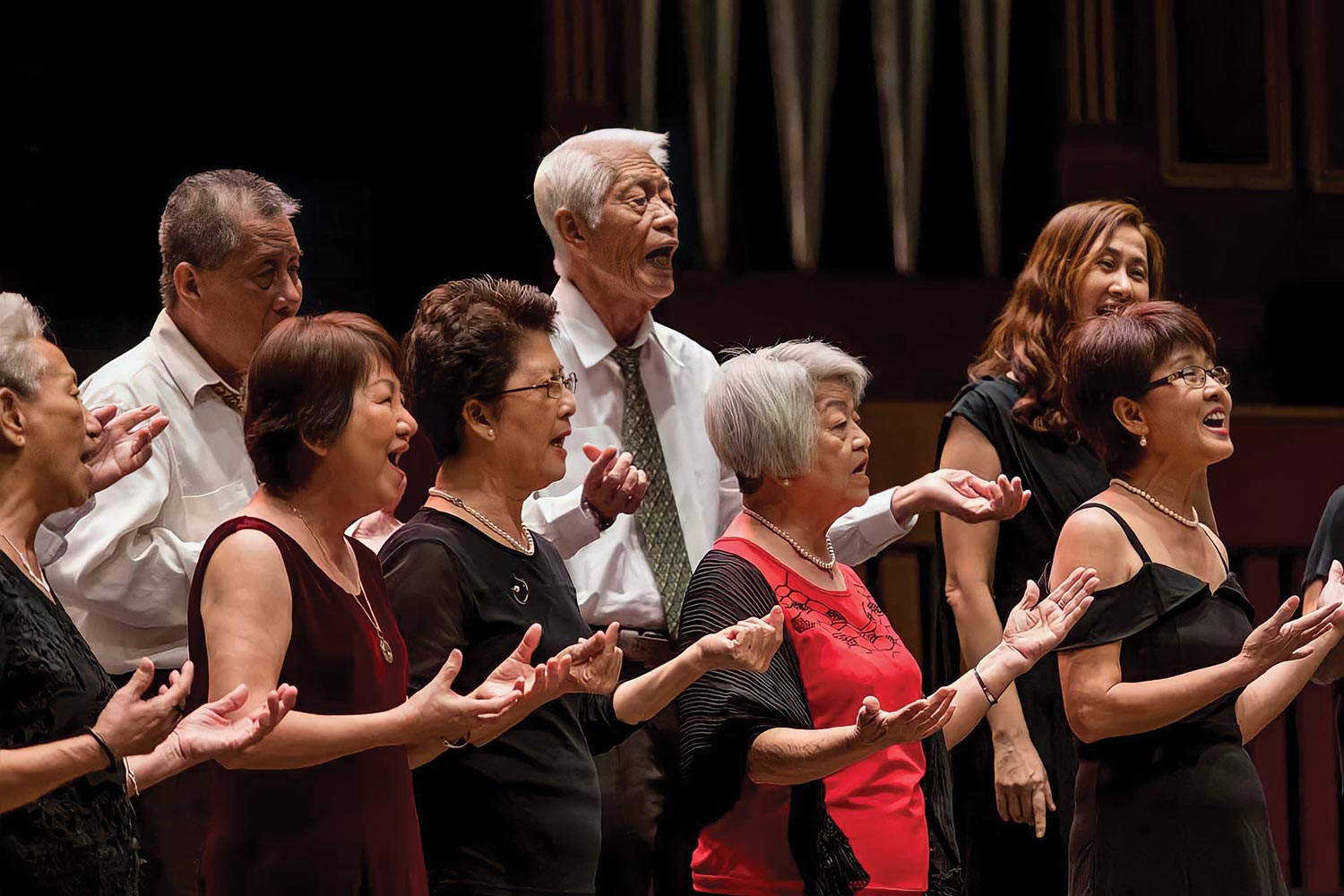
Issue 38 / May 2021
People of NUS Medicine
Pressing on – Medical
Education in Trying Times
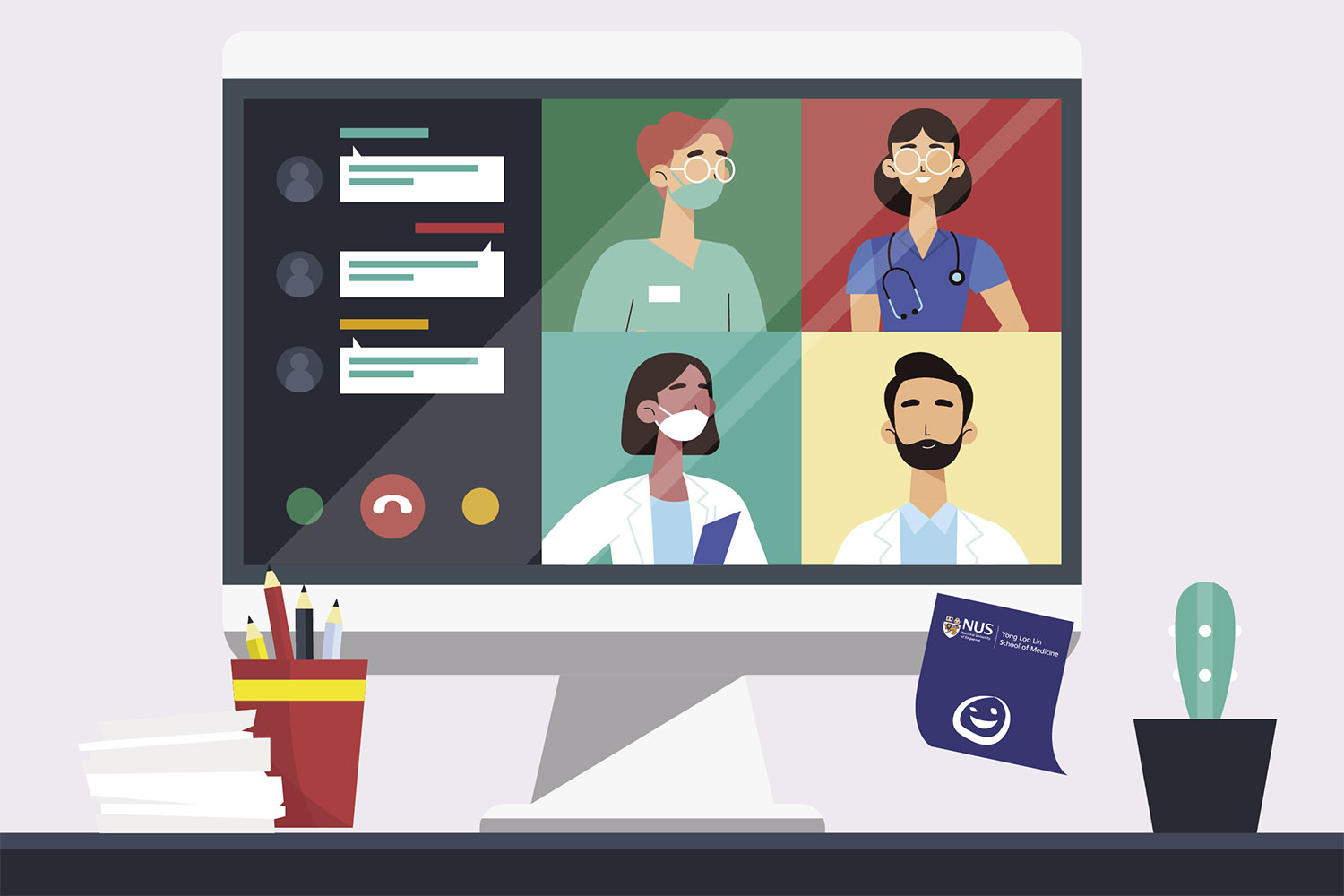
The COVID-19 pandemic lent even greater urgency to the School’s mission to train future doctors. Despite the many challenges and disruptions caused by the pandemic, we were able to complete the academic year and graduate the Class of 2020, who were immediately put to work alongside fellow healthcare professionals. Unusual times require novel and unorthodox solutions, and the NUS Medicine Fortitude Award recognises our teachers and educators who made tremendous effort to teach and contribute to the education and training of our medical students during those frenetic months of the pandemic. We feature a few of these award recipients, who share their thoughts and hopes for medical education in the age of COVID-19.
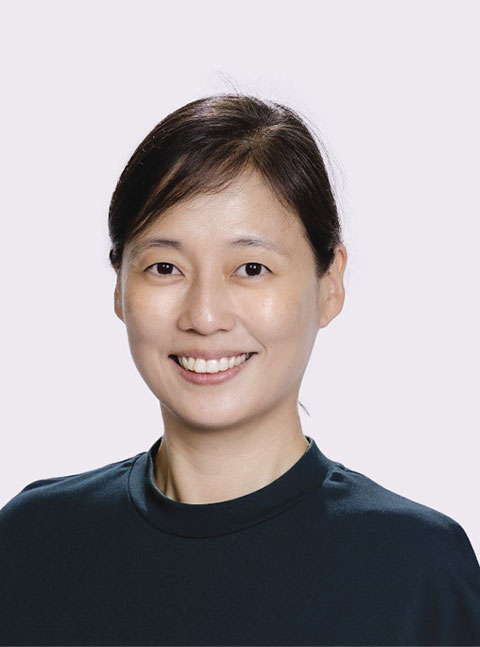
Adjunct Associate Professor Nicola Ngiam
Senior Consultant, Division of Paediatric Critical Care, Khoo Teck Puat-National University Children’s Medical Institute, National University Health System
Director, Standardised Patient Programme, Centre for Healthcare Simulation, National University of Singapore
Adjunct Associate Professor, Department of Paediatrics, NUS Yong Loo Lin School of Medicine
The COVID-19 pandemic rampaged through Singapore at the start of 2020 and has spared no one. Every individual on our tiny red dot has been affected in one way or another and medical education was no exemption. The risks of viral transmission had immediate consequences for our high stakes undergraduate medical and surgical examinations in March 2020. The subsequent impact of restrictions on real patient exposure was then felt in the planning for the new academic year that began as early as June 2020.
Simulated patient (or SP in short, refers to volunteers who have been trained to mimic symptoms of illness) methodology provided an intuitive alternative to real patient exposure for our students, both in assessment as well as in formative sessions. With some creativity and a lot of teamwork, the School managed to run a modified clinical examination that was entirely SP based, combined with elements of hybrid simulation, pre-recorded auscultatory findings, moulage and simulation of abnormal signs, for our graduating medical students. SP cases were also developed rapidly and virtual platforms harnessed to optimise learning for students, when the academic year started in the face of reduced patient contact. Faculty worked with the NUS standardised patient programme on case development and planning of logistics and administrative details. Student feedback was encouraging, reflecting the benefit that they experienced from these SP encounters. They also valued the feedback on communication skills that they received from the SPs, which they would not have received in real patient encounters.
Being able to fill the gaps in medical education in a time of dire need was a fulfilling experience. Hearing the positive feedback from faculty and students as well as the SPs was rewarding. The adaptive nature and resilience of the various teams in medical education managing this experience was inspiring. No one knows know what the future will bring, but I am confident that the lessons learnt from this pandemic has made us stronger and better able to deal with the next challenge we face.
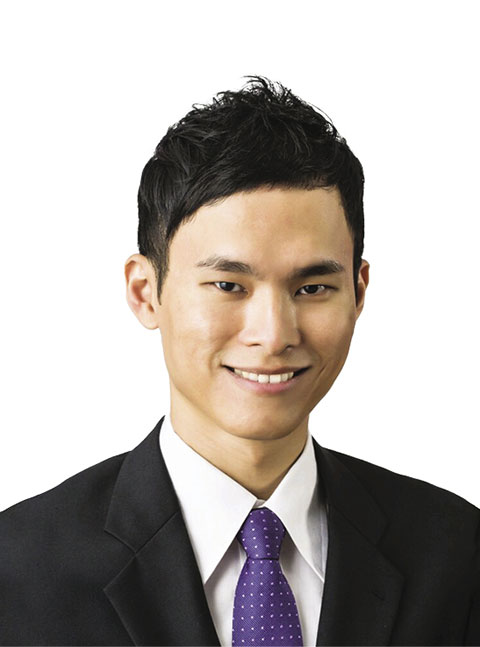
Dr Benjamin Goh Yen Seow
Consultant, Department of Urology, National University Hospital
Kidney Transplant Surgeon, National University Centre for Organ Transplant
Director Undergraduate Medical Education, Department of Surgery, NUS Medicine
Assistant Professor, Department of Surgery, NUS Yong Loo Lin School of Medicine
COVID-19 is a test of undergraduate education during Volatile, Uncertain, Complex and Ambiguous (VUCA) times. A prominent challenge was having surgical tutors across Singapore be aligned in coming up with relevant content and pedagogy to deliver these online while enabling virtual student learning that was impactful.
The concept of change management really helped in these times, by:
|
1) |
Paying attention to the old ways of teaching coming to an end and the emotions that come with this closure for both tutors and students; |
|
2) |
Being willing to explore the void between what was and what could be, to allow for creative and novel ways to deliver quality medical education; |
|
3) |
Launching off in a strategic and meaningful way to teach surgery despite theatres and procedure rooms being deemed high risk and hence out of bounds to students. |
I also learnt that leading during a time of crisis was different from leading during periods of peace and business as usual. While we seek to innovate and be creative in the latter, the COVID-19 situation required stability and coherent leadership for clinical educators to stay the course, avoid burnout and be in service to patients and students.
The most satisfying aspect of my work is hearing graduates say that they manage patients differently with better outcomes as a result of their time with the Department of Surgery/Urology.
My wish would be for more graduates and clinicians from the healthcare system to come back and contribute to undergraduate medical education.
I had the pleasure of being taught by Associate Professor Kenneth Mak, Director of Medical Services at the Ministry of Health, years ago for my postgraduate surgical exam. When asked, he mentioned the way to thank him was to pay it forward and continue teaching our juniors and students.
We contribute by giving more than we take from a system. Only when individuals give will the system thrive and flourish.
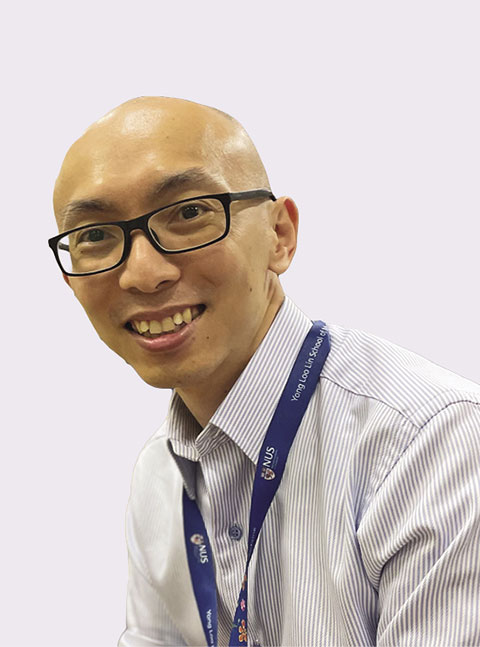
Dr Derrick Lian
Consultant, Department of Pathology, National University Hospital
Assistant Professor, Department of Pathology, NUS Yong Loo Lin School of Medicine
Moving from face-to-face to online teaching has been challenging, but it is not unique to medical educators; I found it useful to look to educators in other disciplines and levels of education for their innovative approaches to handling this unanticipated sudden change. For example, some school teachers used several devices with cameras for their online classes, and others have used apps to layer their camera feed onto the slide presentation for enhanced engagement.
I have already clocked more than 80 hours of online teaching, and I am finding every session enjoyable with satisfactory student engagement levels. While we don’t get to see the students in person, online teaching comes with benefits such as convenience, ability to record sessions, and ease of attending colleague’s teaching sessions.
Recently, I facilitated a face-to-face workshop, and I found it heartwarming to have students whom I had previously taught online seek me out, just to say hello. Moving forward, I hope to continue to use my personal experiences to help my fellow educators overcome their challenges in migrating to online teaching.
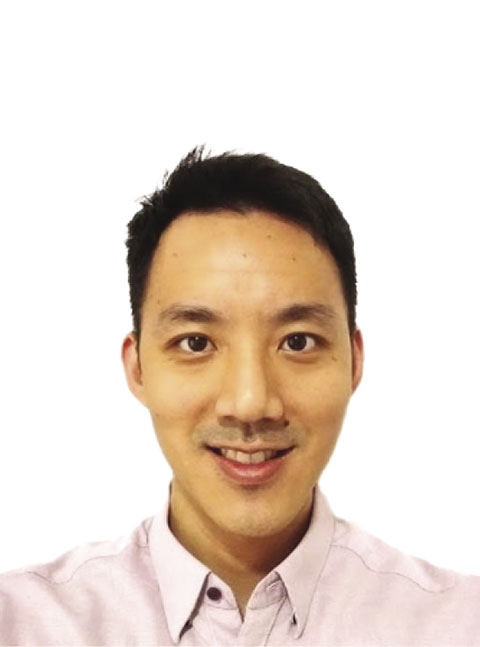
Dr Ling Zheng Jye
Medical Informatics Assistant Director, Academic Informatics Office, National University Health System
Adjunct Assistant Professor, Department of Medicine, NUS Yong Loo Lin School of Medicine
During COVID-19, most preventive health work in the community was stopped. My innovative CareHub colleagues decided to switch over to telemedicine to replace their home visits. Meanwhile, colleagues in health screening took the opportunity to create workflows for online enrolment into a reminder service for health screening, under the My Health Map programme that aims to keep the residents of western Singapore healthy. Despite being unable to conduct on-site, physical events, the challenge was converted to multiple opportunities to make our community health services more resilient and also meet our residents where they are.
Engaging with colleagues and students always opens my eyes to new perspectives and solutions to problems. Working with them on their assignments is an annual highlight, as they review and summarise the literature. I have greatly benefitted from teaching them, as they keep me updated on changes, which are grounded in existing evidence. I am very grateful for the chances to work with great colleagues and students here at the NUHS. Knowing that we can come up with solutions together to make life better is a great part of my job satisfaction.
I hope that we can develop more self-paced learning for healthcare informatics, so that learners can internalise the information and skills better. Teaching healthcare informatics is a young field, so there is much work to be done. In addition, I still want to develop a chatbot that can double up as a simulated patient for clinical undergraduates and postgraduates!
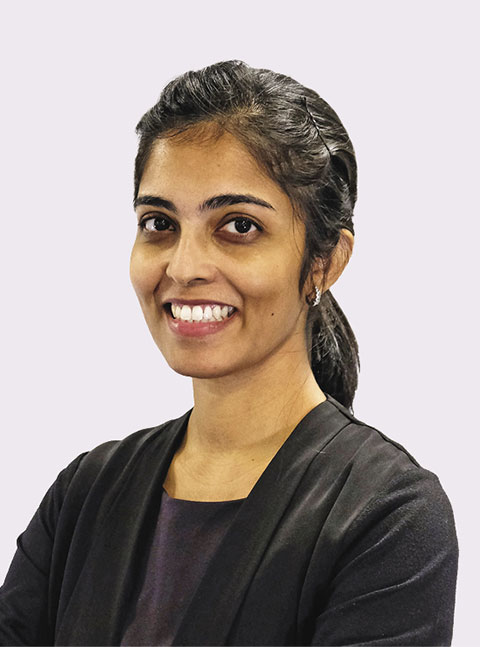
Dr Inthrani Raja Indran
Senior Lecturer, Department of Pharmacology, NUS Yong Loo Lin School of Medicine
Education Director (Medicine and Dentistry), Department of Pharmacology
The year 2020 was deeply insightful for me. As the full wrath of COVID-19 descended upon us in late February last year, it became clear that we needed to rapidly adapt to ensure continuity. During that period, I was inspired by colleagues from across NUS. Despite their heightened workloads, the information and educational technology teams patiently answered every single email and call and worked to digitally equip the staff and students for the long road ahead. They demonstrated absolute professionalism. On the ground, despite the physical separation, we found ourselves working together in new ways to ensure that this pandemic would not lower our standards.
While I saw strength on one hand, COVID-19 also shed light on the disparities that exist in our community. From unstable internet connections, to unconducive working environments and dealing with isolation—these are just a few of the many harsh realities that DORSCON Orange exposed in our community. Over the past year, COVID-19 has given me privileged access into the homes and lives of colleagues and students. It showed me that it is a privilege to have a clear one-metre-by-half-metre working space, a stable internet connection and a relatively conducive working environment.
Pre-pandemic, I used to mindlessly transverse physical spaces like the corridors and coffee haunts, oblivious to how they quietly disarmed social isolation with a buffet of conversations from intellectual discourse to mindless banter, providing us with numerous channels to unwind, recharge and upkeep our mental health. The circuit breaker changed the face of human interactions. This pandemic has been an awakening for me, to be mindful of the different needs that exist in our community so as to ensure greater inclusiveness.
As an educator, I hope that my students’ journeys in health education do not just train their minds to deliver the right treatment, but instead have also enabled them to do so bearing in mind the differences in access that different individuals have, in order to create a more equitable healthcare system.
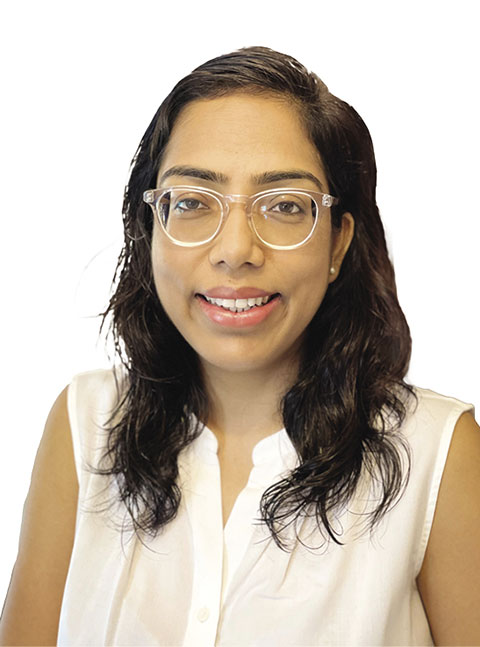
Ms Shikha Kumari
Senior Assistant Director, Value Driven Outcome Office (VDO), National University Health System
Adjunct Instructor, Department of Medicine, NUS Yong Loo Lin School of Medicine
COVID-19 has been a difficult time for all of us, but the one fact that kept me going was the fearless commitment of doctors and nurses to help patients. Circuit breaker left many families isolated, including mine, but reading about frontline healthcare workers who stepped up to keep everyone safe kept me strong and positive throughout this time. Amidst the challenging environment, we have to focus on the positive, and I practised this by developing a sense of appreciation and gratitude for our selfless workers.
At work, what keeps me going is the opportunity to improve and find betterment in healthcare outcomes. We collect a lot of data in our organisation, but to be able to use that data and increase value for our patients and stakeholders is of utmost importance to me. Our team tracks the performance of various projects over time and works with clinicians to monitor improvements in value, either through better quality or rationalised cost savings.
We also work on projects in combination with the Ministry of Health to transform healthcare to better accommodate the needs of patients, given the country’s demographic challenges. Overall, it is these opportunities where I am involved to further enhance the value delivered to our patients and stakeholders that makes my work rewarding.
In terms of healthcare education, I would like to highlight the importance of data analytics given the pandemic we are in. The use of numbers, charts and analytics to inform the public and assist in government decision-making has played a fundamental role in mitigating the threats presented by COVID-19. With data collection and literacy advancing throughout the pandemic, I hope to instil within students not only the ability to read and interpret data, but a sense of how critical a data-driven approach is to recovery.

